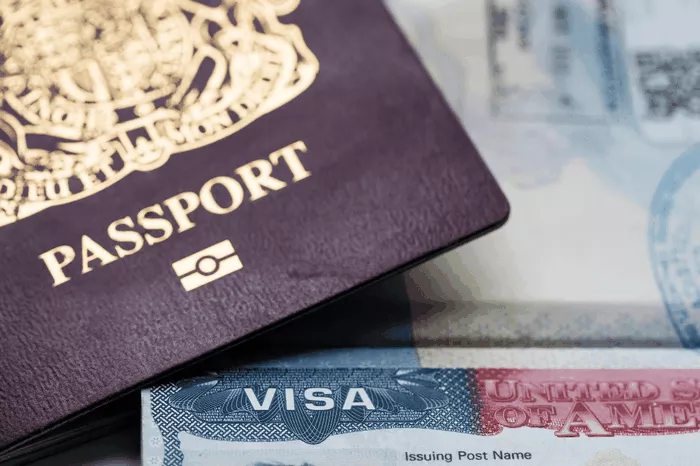In the realm of immigration law, the R visa stands as a vital tool for religious workers seeking to enter the United States for temporary employment in religious capacities. This article aims to delve into the intricacies of the R visa, shedding light on its eligibility criteria, application process, benefits, and limitations.
What is an R Visa?
The R visa is a nonimmigrant visa category specifically designed for foreign nationals who wish to enter the United States to work in religious occupations or vocations. It falls under the umbrella of temporary worker visas, allowing individuals to engage in religious work for a limited period.
Eligibility Criteria
To qualify for an R visa, both the religious worker and the petitioning religious organization must meet certain criteria:
1. Religious Worker Eligibility: The individual seeking the R visa must be a member of a religious denomination for at least two years immediately preceding the filing of the petition. They should also be entering the United States to work in a religious occupation or vocation, such as a minister, priest, nun, or religious instructor.
2. Petitioning Religious Organization: The religious organization or affiliate in the United States must be tax-exempt under section 501(c)(3) of the Internal Revenue Code. It should also demonstrate the ability to provide for the religious worker’s compensation, either through salaried or non-salaried means.
3. Job Offer Requirement: The religious organization must extend a formal job offer to the religious worker for a position that is primarily related to carrying out the organization’s religious activities.
Full-Time Employment: The position offered to the religious worker must be full-time, requiring a minimum of 35 hours of work per week.
Application Process
The process of obtaining an R visa involves several steps, beginning with the submission of a petition to the United States Citizenship and Immigration Services (USCIS). Here’s an overview of the application process:
1. File Form I-129: The religious organization seeking to employ the foreign religious worker must file Form I-129, Petition for a Nonimmigrant Worker, with the USCIS. This form serves as the official request for the R visa classification.
2. Provide Supporting Documentation: Along with Form I-129, the petitioner must submit supporting documentation, including evidence of the religious worker’s qualifications, job offer, and the organization’s tax-exempt status.
3. Approval by USCIS: Upon receiving the petition, the USCIS will review the application and supporting documents to determine eligibility. If approved, the USCIS will issue an approval notice, Form I-797, indicating that the petition has been accepted.
4. Consular Processing: Once the petition is approved, the religious worker can apply for an R visa at the U.S. consulate or embassy in their home country. They must attend an interview and provide additional documentation to establish their eligibility for the visa.
5. Entry into the United States: Upon receiving the R visa, the religious worker can travel to the United States and begin employment with the sponsoring religious organization.
Benefits of an R Visa
Obtaining an R visa offers several benefits for both religious workers and sponsoring organizations:
1. Temporary Employment Authorization: The R visa allows religious workers to legally work in the United States for a specified period, typically up to five years, with the possibility of extension.
2. Accompanying Family Members: Religious workers with an R visa can bring their spouse and unmarried children under the age of 21 to the United States on R-2 visas. Dependent family members can study in the U.S. but are not authorized to work unless they obtain their own employment authorization.
3. Path to Permanent Residency: While the R visa is a temporary nonimmigrant visa, religious workers may be eligible to apply for permanent residency (green card) under certain circumstances, such as through the Special Immigrant Religious Worker Program.
4. Cultural Exchange: Religious workers have the opportunity to engage in cultural exchange and share their religious traditions and practices with communities in the United States.
Limitations and Considerations
Despite its benefits, the R visa also has limitations and considerations that applicants should be aware of:
1.Temporary Status: The R visa is a nonimmigrant visa, meaning it does not provide a direct path to permanent residency. Religious workers must maintain their nonimmigrant status and may need to depart the United States upon the expiration of their visa.
2. Specific Job Offer: The religious worker must have a specific job offer from a qualifying religious organization in the United States. If the employment relationship terminates, the worker may be required to leave the country unless they obtain alternative employment or change their immigration status.
3. Annual Cap: The number of R visas issued each year is subject to an annual cap, which may result in delays or limitations for applicants, particularly if the cap is reached early in the fiscal year.
4. Compliance with Visa Terms: Religious workers and sponsoring organizations must adhere to the terms and conditions of the R visa, including maintaining accurate records, complying with immigration regulations, and reporting any changes in employment or personal circumstances.
Conclusion
In conclusion, the R visa serves as a valuable resource for religious workers seeking temporary employment opportunities in the United States. By understanding the eligibility criteria, application process, benefits, and limitations associated with the R visa, religious workers and sponsoring organizations can navigate the immigration process with greater clarity and confidence. As immigration laws and policies continue to evolve, it is essential for applicants to stay informed and seek professional guidance when pursuing an R visa.


